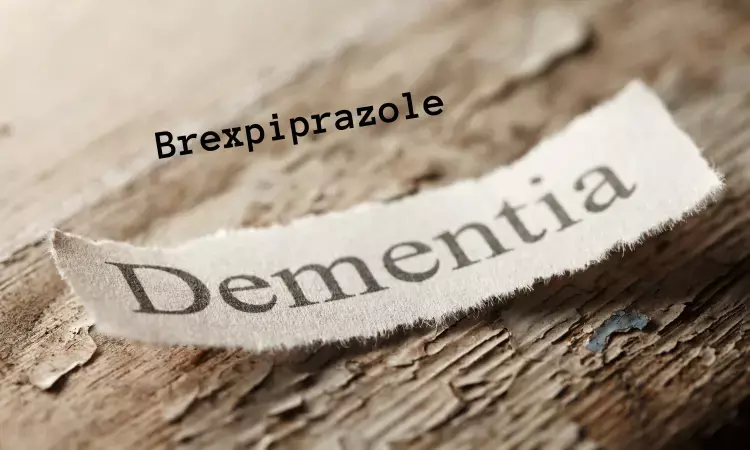- Home
- Medical news & Guidelines
- Anesthesiology
- Cardiology and CTVS
- Critical Care
- Dentistry
- Dermatology
- Diabetes and Endocrinology
- ENT
- Gastroenterology
- Medicine
- Nephrology
- Neurology
- Obstretics-Gynaecology
- Oncology
- Ophthalmology
- Orthopaedics
- Pediatrics-Neonatology
- Psychiatry
- Pulmonology
- Radiology
- Surgery
- Urology
- Laboratory Medicine
- Diet
- Nursing
- Paramedical
- Physiotherapy
- Health news
- Fact Check
- Bone Health Fact Check
- Brain Health Fact Check
- Cancer Related Fact Check
- Child Care Fact Check
- Dental and oral health fact check
- Diabetes and metabolic health fact check
- Diet and Nutrition Fact Check
- Eye and ENT Care Fact Check
- Fitness fact check
- Gut health fact check
- Heart health fact check
- Kidney health fact check
- Medical education fact check
- Men's health fact check
- Respiratory fact check
- Skin and hair care fact check
- Vaccine and Immunization fact check
- Women's health fact check
- AYUSH
- State News
- Andaman and Nicobar Islands
- Andhra Pradesh
- Arunachal Pradesh
- Assam
- Bihar
- Chandigarh
- Chattisgarh
- Dadra and Nagar Haveli
- Daman and Diu
- Delhi
- Goa
- Gujarat
- Haryana
- Himachal Pradesh
- Jammu & Kashmir
- Jharkhand
- Karnataka
- Kerala
- Ladakh
- Lakshadweep
- Madhya Pradesh
- Maharashtra
- Manipur
- Meghalaya
- Mizoram
- Nagaland
- Odisha
- Puducherry
- Punjab
- Rajasthan
- Sikkim
- Tamil Nadu
- Telangana
- Tripura
- Uttar Pradesh
- Uttrakhand
- West Bengal
- Medical Education
- Industry
Less dosage of Brexpiprazole efficient to treat agitation in dementia

Agitation in dementia is commonly reported and has a negative effect on patient functioning, health outcomes, and quality of life increases caregiver distress and time spent caring and may contribute to the patient being institutionalized. Brexpiprazole is a rarely prescribed antipsychotic that acts on noradrenergic, serotonergic, and dopaminergic neurotransmitter systems, which are implicated in the neurochemistry of agitation in Alzheimer disease.
Daniel Lee, MD and a team of researchers in a recent trial aimed to evaluate the efficacy, safety, and tolerability of brexpiprazole in patients with agitation in Alzheimer dementia. They report that brexpiprazole, 2 mg/d or 3 mg/d, demonstrated a statistically significant reduction in agitation against placebo over 12 weeks. No treatment emergent showed adverse events with an incidence of 5% or greater with brexpiprazole and greater than placebo, and the discontinuation rates due to adverse events were similar across the groups. The findings of the trial are published in JAMA Neurology.
Researchers designed a randomized clinical trial was a 12-week, double-blind, placebo-controlled, fixed-dose, parallel-arm trial that ran from May 2018 to June 2022 at 123 clinical trial sites in Europe and the United States. Participants included patients with agitation in Alzheimer dementia in a care facility or community-based setting. Stable Alzheimer disease medications were permitted. In this 2-arm trial, patients were randomized to receive oral brexpiprazole or placebo (2:1 ratio) for 12 weeks. Within the brexpiprazole arm, patients were further randomized to receive fixed doses of 2 mg/d or 3 mg/d in a 1:2 ratio.
The primary end point was change in Cohen-Mansfield Agitation Inventory total score (which measures the frequency of 29 agitated behaviors) from baseline to week 12 for brexpiprazole, 2 or 3 mg, vs placebo. Safety was assessed by standard measures, including treatment-emergent adverse events.
The key findings of the trial are
• Out of 345 patients 288 were randomized to receive brexpiprazole and 117 placebo; completion rates were 198 (86.8%) for brexpiprazole and 104 (88.9%) for placebo.
• 225 patients receiving brexpiprazole, 2 or 3 mg, demonstrated statistically significantly greater improvement than those 116 taking placebo in Cohen-Mansfield Agitation Inventory total score from baseline to week 12 (brexpiprazole baseline, 80.6, mean change, −22.6; placebo baseline, 79.2, mean change, −17.3; least-squares mean difference, −5.32; 95% CI, −8.77 to −1.87; P = .003; Cohen d effect size, 0.35).
• No treatment-emergent adverse events had an incidence of 5% or more with brexpiprazole and greater incidence than placebo.
• The proportion of patients who discontinued because of adverse events was 12 of 226 (5.3%) for brexpiprazole and 5 of 116 (4.3%) for placebo.
Researchers concluded that “ In this study, patients with Alzheimer dementia who took brexpiprazole, 2 or 3 mg, showed a statistically significant improvement vs placebo in agitation over 12 weeks. Brexpiprazole was generally well tolerated over 12 weeks in this vulnerable patient population.”
Reference: Lee D, Slomkowski M, Hefting N, et al. Brexpiprazole for the Treatment of Agitation in Alzheimer Dementia: A Randomized Clinical Trial. JAMA Neurol. Published online November 06, 2023. doi:10.1001/jamaneurol.2023.3810
MSc. Neuroscience
Niveditha Subramani a MSc. Neuroscience (Faculty of Medicine) graduate from University of Madras, Chennai. Ambitious in Neuro research having worked in motor diseases and neuron apoptosis is interested in more of new upcoming research and their advancement in field of medicine. She has an engrossed skill towards writing and her roles at Medical dialogue include Sr. Content writer. Her news covers new discoveries and updates in field of medicine. She can be reached at editorial@medicaldialogues.in
Dr Kamal Kant Kohli-MBBS, DTCD- a chest specialist with more than 30 years of practice and a flair for writing clinical articles, Dr Kamal Kant Kohli joined Medical Dialogues as a Chief Editor of Medical News. Besides writing articles, as an editor, he proofreads and verifies all the medical content published on Medical Dialogues including those coming from journals, studies,medical conferences,guidelines etc. Email: drkohli@medicaldialogues.in. Contact no. 011-43720751


